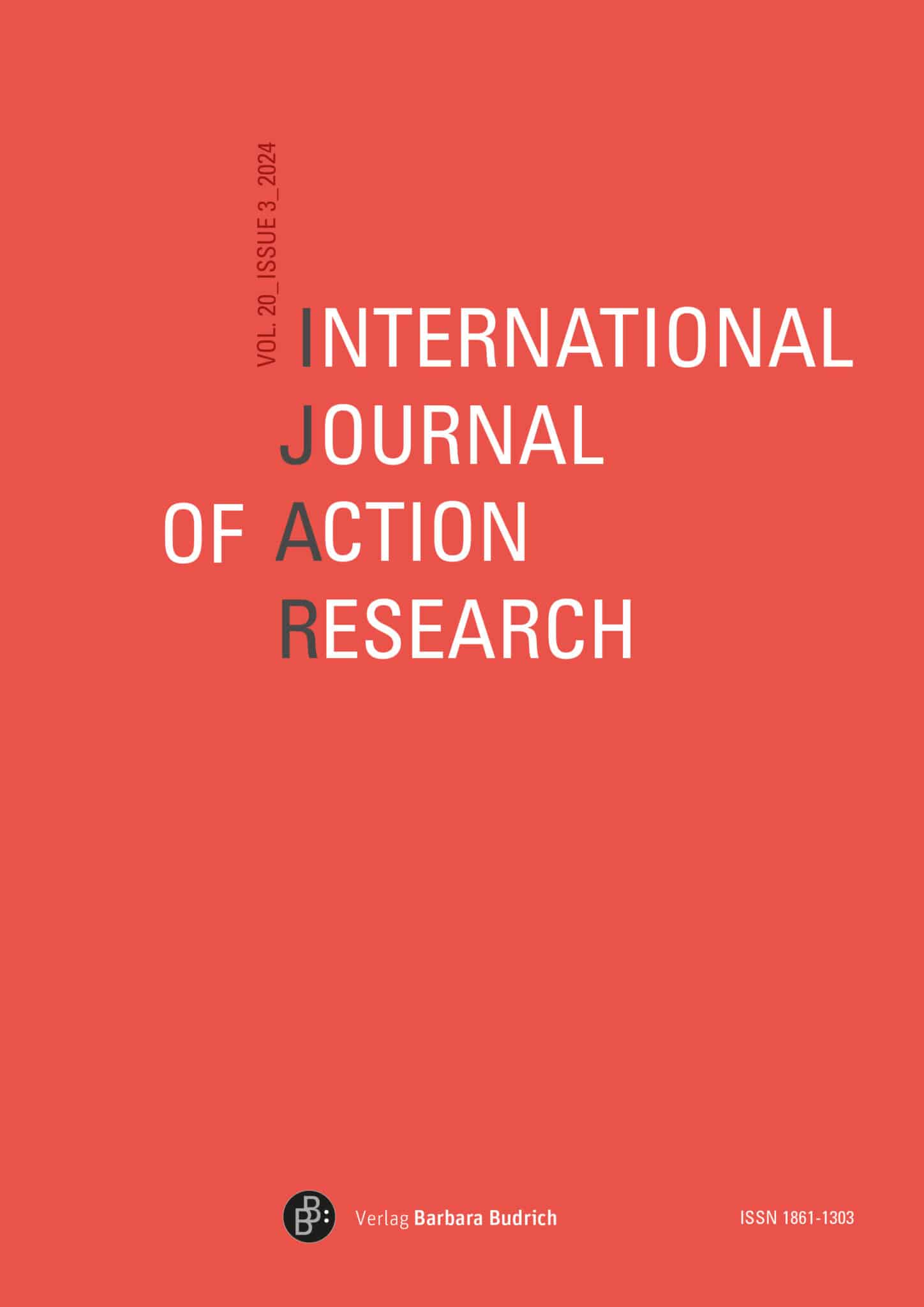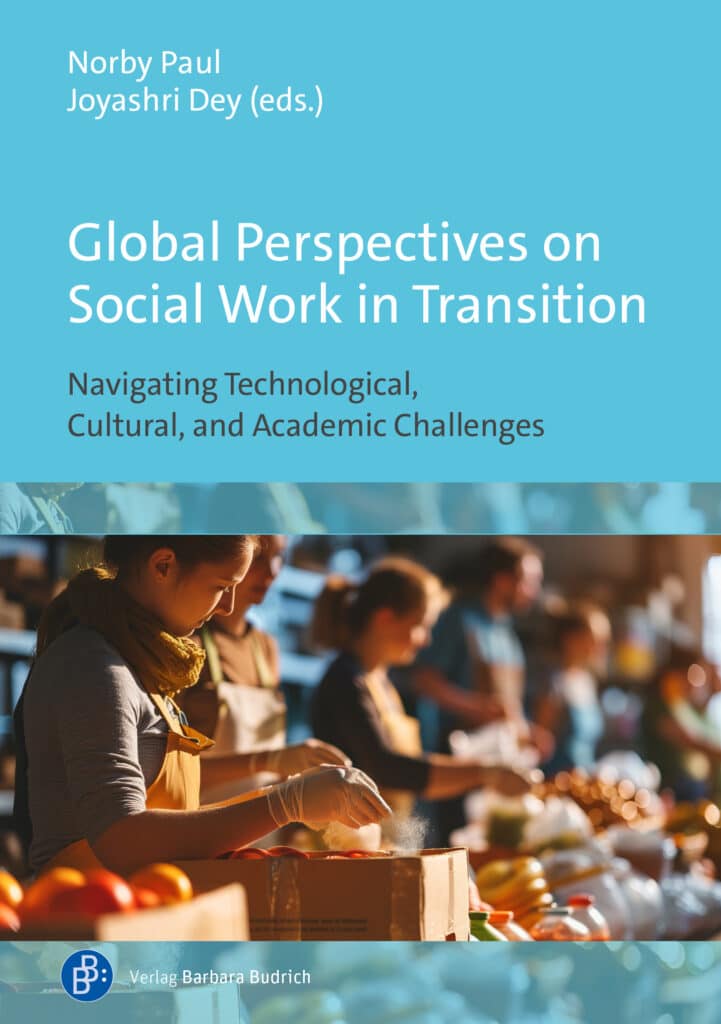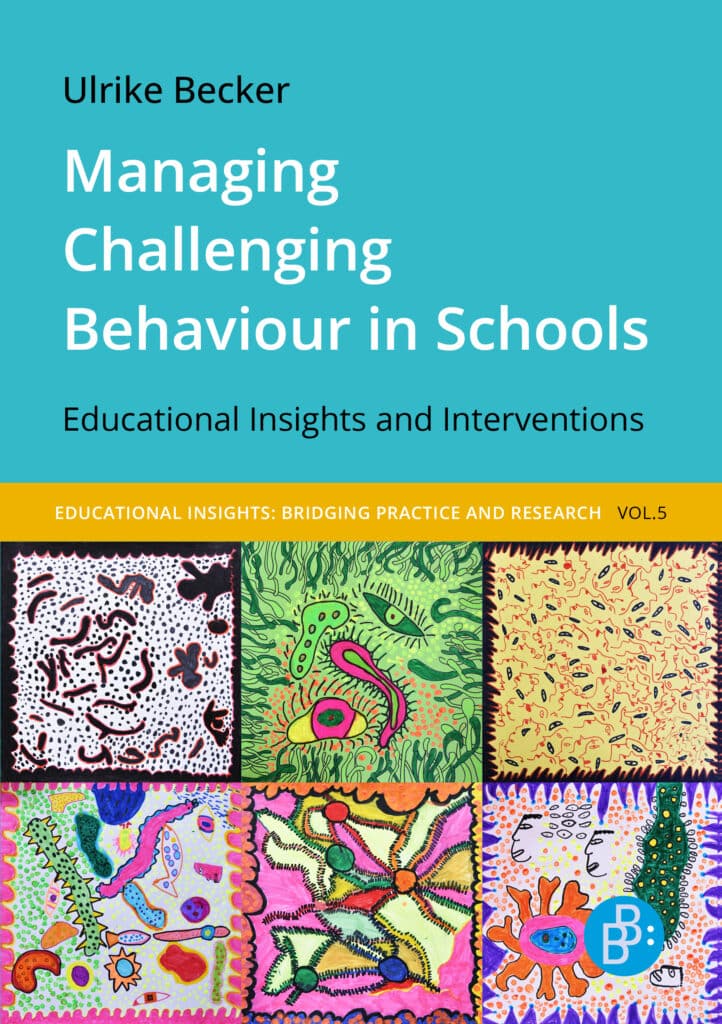Informationen zur Zeitschrift
Home » Publications » IJAR 3-2024 | Free Contributions
IJAR 3-2024 | Free Contributions
Erscheinungsdatum : 16.01.2025
29,00 €
Inhalt
IJAR – International Journal of Action Research
3-2024: Free Contributions
Editorial
Miren Larrea: A new stage in an evolving journal
Articles
Jennifer Beaudoin / Miranda D’Amico: Look both ways before crossing: Using a triangulation of art-based methods to transform student – staff relationships as it relates to school climate
Claudia Spiess / Suna Kircali: How does the collaboration work? An Analysis of Power in the Disabled in Politics Cooperative Project and its Implication for Action Research
Imanol Telleria / Maria del Mar Lledó: Participatory Action Research for Educational and Social Inclusion. Experiences in scenarios of social segregation and unwanted isolation
Eloïse Dagneau / Fanny Procureur / Krizia Vieri / Davide Olchini / Louisa Ben Abdelhafidh / Anne-Laurence Franzini: Initiating a Dynamic Co-Constructed One Health Project: reflections from Participatory Action Research in the Kahuzi-Biega National Park, Democratic Republic of Congo
Interview
Patricia Canto / Danilo R. Streck / Miren Larrea: Exploring (safe) spaces to communicate and connect
Download of single articles (Open Access/fee-based): ijar.budrich-journals.com
You can register here for the IJAR alert.
Einzelbeitrag-Download (Open Access/Gebühr): ijar.budrich-journals.com
Sie können sich hier für den IJAR-Alert anmelden.
Zusätzliche Informationen
| Publisher | |
|---|---|
| ISSN | 1861-1303 |
| eISSN | 1861-9916 |
| Volume | 20. Jahrgang 2024 |
| Edition | 3-2024 |
| Date of publication | 16.01.2025 |
| Scope | 96 Seiten |
| Language | Englisch |
| Format | 17 x 24 cm |
| DOI | |
| Homepage |
Additional Content
Table of Contents / Inhaltsverzeichnis
Extracts / Leseproben
Autor*innen
Keywordsaction research, arts-based methods, citizen participation, co-construction, collaboration, communication, community involvement, connection, cooperative projects, cross-sectoral collaboration, Democratic Republic of Congo, Disability, Januar 2025, Kahuzi-Biega National Park, One Health, participatory action research, Pierre Bourdieu, Political Participation, power analysis, power dynamics, safe spaces, school climate, social inclusion, Social Transformation, student council, student – staff relationships, theory of capital
Abstracts
Look both ways before crossing: Using a triangulation of artbased methods to transform student – staff relationships as it relates to school climate (Jennifer Beaudoin, Miranda D’Amico)
By engaging in an art(s) based action-research case study, youth from a Montréal school considered student-staff relationships as they relate to school climate. Three arts-based data collection methods (timeline, relational map, and photovoice) were used to gain awareness on how relationships with staff constituted the primary determinant of student behavior, student engagement, and a robust school climate. Positive relationships were found to be facilitated by staff who authentically engage with students’ lives outside the classroom, demonstrate equity and discretion in classroom management practices, and allow for redemption following rule infractions or conflicts. With the goal of enacting sustainable change in the school environment, participants collaborated in drafting a Call to Action addressed to the school’s administration, advocating for the creation of a student council as a space to voice their positions, build better communication with staff, and foster a healthy school climate. The paper thus illustrates how art(s) based action-research can contribute to transforming school environments. Keywords: Participatory Action Research; Arts-based methods; Student – staff relationships; School climate; Student council
» Buy Single Contribution (Budrich Journals) / Einzelbeitrag kaufen (Budrich Journals)
How does the collaboration work? An Analysis of Power in the Disabled in Politics Cooperative Project and its Implication for Action Research (Claudia Spiess, Suna Kircali)
The article addresses the problem of power relations in cooperative and action research projects. The Disabled in Politics project, a cooperative research project, was conducted inSwitzerland by three institutions: 1) the Tatkraft Association, an association of disabled people; 2) the Centre for Social Law at the Zurich University of Applied Sciences (ZHAW); and 3) the Chair of Special Education: Society, Participation, and Disability at the University of Zurich. However, the different resources of the cooperation partners led to practical problems with power. Therefore, we analyze the collaboration within the project through Pierre Bourdieu’s theory of capital and reveal power relations and shifts based on critical project decisions. This article examines the influence of the partners’ institutional backgrounds on the collaboration and how their positions changed throughout the project. Finally, Bourdieu’s template is proposed to better understand power relations in action research projects. Keywords: collaboration, cooperative projects, power analysis, political participation, disability, Pierre Bourdieu, theory of capital
» Buy Single Contribution (Budrich Journals) / Einzelbeitrag kaufen (Budrich Journals)
Participatory Action Research for Educational and Social Inclusion. Experiences in scenarios of social segregation and unwanted isolation (Imanol Telleria, Maria del Mar Lledó)
The article compiles the knowledge generated in various areas of social exclusion such as social segregation and unwanted isolation, through participatory action research processes carried out in the context of the internships of the Master’s degree in Community Participation and Development of the University of the Basque Country. It is the relationship networks that are established that give rise to new knowledge, based on the analysis of the feedback that arises between the most socially vulnerable, the associations in which they participate and university students and academics. Social and tangible challenges are set out on which to strengthen individual and collective competences and promote an awareness that has an impact on both personal change and the environment. The systematization of the experiences and the critique of the process, carried out by the tutors with the role of researchers, allows us to identify the characteristics of the spaces from which values are developed and consensus on common interests, rights and needs is reached. An assessment of their own and common learning, by the different participating agents (educational, professional and community) highlights the weaknesses, strengths and opportunities that need to be faced in order to be competent in the development of social cohesion dynamics. The aim is to contribute to greater participation of people in vulnerable situations. Keywords: Social transformation, social inclusion, action-research, citizen participation
» Buy Single Contribution (Budrich Journals) / Einzelbeitrag kaufen (Budrich Journals)
Initiating a Dynamic Co-Constructed One Health Project: reflections from Participatory Action Research in the Kahuzi- Biega National Park, Democratic Republic of Congo (Eloïse Dagneau, Fanny Procureur, Krizia Vieri, Davide Olchini, Louisa Ben Abdelhafidh, Anne-Laurence Franzini)
In an era of interconnected global challenges, the One Health (OH) approach emerges as a beacon of collaborative resilience in the face of emerging pandemics. The implications are particularly profound in the Democratic Republic of Congo (DRC), a known hotspot for infectious diseases. Recognizing this, we employed Participatory Action Research (PAR) as a community-centered approach to implementing the OH framework to address environmental, animal, and human health issues in the Kahuzi-Biega National Park (KBNP) area. Through a structured process of knowledge integration, we enhance our comprehension of underlying issues while establishing a sustained partnership with the community. This approach ensures that solutions are not only contextually relevant but are the product of a collaborative co-construction, thereby reinforcing long-term resilience at the community level. This article explores the application of this approach, detailing the co-construction process and sharing challenges regarding power dynamics, and lessons learned from the project implementation in a humanitarian context. Keywords: co-construction, community involvement, cross-sectoral collaboration, One Health, participatory action research, power dynamics
» Buy Single Contribution (Budrich Journals) / Einzelbeitrag kaufen (Budrich Journals)
Inhalt
Inhalt
IJAR – International Journal of Action Research
3-2024: Free Contributions
Editorial
Miren Larrea: A new stage in an evolving journal
Articles
Jennifer Beaudoin / Miranda D’Amico: Look both ways before crossing: Using a triangulation of art-based methods to transform student – staff relationships as it relates to school climate
Claudia Spiess / Suna Kircali: How does the collaboration work? An Analysis of Power in the Disabled in Politics Cooperative Project and its Implication for Action Research
Imanol Telleria / Maria del Mar Lledó: Participatory Action Research for Educational and Social Inclusion. Experiences in scenarios of social segregation and unwanted isolation
Eloïse Dagneau / Fanny Procureur / Krizia Vieri / Davide Olchini / Louisa Ben Abdelhafidh / Anne-Laurence Franzini: Initiating a Dynamic Co-Constructed One Health Project: reflections from Participatory Action Research in the Kahuzi-Biega National Park, Democratic Republic of Congo
Interview
Patricia Canto / Danilo R. Streck / Miren Larrea: Exploring (safe) spaces to communicate and connect
Download of single articles (Open Access/fee-based): ijar.budrich-journals.com
You can register here for the IJAR alert.
Einzelbeitrag-Download (Open Access/Gebühr): ijar.budrich-journals.com
Sie können sich hier für den IJAR-Alert anmelden.
Bibliography
Zusätzliche Informationen
| Publisher | |
|---|---|
| ISSN | 1861-1303 |
| eISSN | 1861-9916 |
| Volume | 20. Jahrgang 2024 |
| Edition | 3-2024 |
| Date of publication | 16.01.2025 |
| Scope | 96 Seiten |
| Language | Englisch |
| Format | 17 x 24 cm |
| DOI | |
| Homepage |
Produktsicherheit
Additional Content
Additional Content
Table of Contents / Inhaltsverzeichnis
Extracts / Leseproben
Bewertungen (0)
Bewertungen
Es gibt noch keine Bewertungen.
Authors
Autor*innen
Tags
Keywordsaction research, arts-based methods, citizen participation, co-construction, collaboration, communication, community involvement, connection, cooperative projects, cross-sectoral collaboration, Democratic Republic of Congo, Disability, Januar 2025, Kahuzi-Biega National Park, One Health, participatory action research, Pierre Bourdieu, Political Participation, power analysis, power dynamics, safe spaces, school climate, social inclusion, Social Transformation, student council, student – staff relationships, theory of capital
Abstracts
Abstracts
Look both ways before crossing: Using a triangulation of artbased methods to transform student – staff relationships as it relates to school climate (Jennifer Beaudoin, Miranda D’Amico)
By engaging in an art(s) based action-research case study, youth from a Montréal school considered student-staff relationships as they relate to school climate. Three arts-based data collection methods (timeline, relational map, and photovoice) were used to gain awareness on how relationships with staff constituted the primary determinant of student behavior, student engagement, and a robust school climate. Positive relationships were found to be facilitated by staff who authentically engage with students’ lives outside the classroom, demonstrate equity and discretion in classroom management practices, and allow for redemption following rule infractions or conflicts. With the goal of enacting sustainable change in the school environment, participants collaborated in drafting a Call to Action addressed to the school’s administration, advocating for the creation of a student council as a space to voice their positions, build better communication with staff, and foster a healthy school climate. The paper thus illustrates how art(s) based action-research can contribute to transforming school environments. Keywords: Participatory Action Research; Arts-based methods; Student – staff relationships; School climate; Student council
» Buy Single Contribution (Budrich Journals) / Einzelbeitrag kaufen (Budrich Journals)
How does the collaboration work? An Analysis of Power in the Disabled in Politics Cooperative Project and its Implication for Action Research (Claudia Spiess, Suna Kircali)
The article addresses the problem of power relations in cooperative and action research projects. The Disabled in Politics project, a cooperative research project, was conducted inSwitzerland by three institutions: 1) the Tatkraft Association, an association of disabled people; 2) the Centre for Social Law at the Zurich University of Applied Sciences (ZHAW); and 3) the Chair of Special Education: Society, Participation, and Disability at the University of Zurich. However, the different resources of the cooperation partners led to practical problems with power. Therefore, we analyze the collaboration within the project through Pierre Bourdieu’s theory of capital and reveal power relations and shifts based on critical project decisions. This article examines the influence of the partners’ institutional backgrounds on the collaboration and how their positions changed throughout the project. Finally, Bourdieu’s template is proposed to better understand power relations in action research projects. Keywords: collaboration, cooperative projects, power analysis, political participation, disability, Pierre Bourdieu, theory of capital
» Buy Single Contribution (Budrich Journals) / Einzelbeitrag kaufen (Budrich Journals)
Participatory Action Research for Educational and Social Inclusion. Experiences in scenarios of social segregation and unwanted isolation (Imanol Telleria, Maria del Mar Lledó)
The article compiles the knowledge generated in various areas of social exclusion such as social segregation and unwanted isolation, through participatory action research processes carried out in the context of the internships of the Master’s degree in Community Participation and Development of the University of the Basque Country. It is the relationship networks that are established that give rise to new knowledge, based on the analysis of the feedback that arises between the most socially vulnerable, the associations in which they participate and university students and academics. Social and tangible challenges are set out on which to strengthen individual and collective competences and promote an awareness that has an impact on both personal change and the environment. The systematization of the experiences and the critique of the process, carried out by the tutors with the role of researchers, allows us to identify the characteristics of the spaces from which values are developed and consensus on common interests, rights and needs is reached. An assessment of their own and common learning, by the different participating agents (educational, professional and community) highlights the weaknesses, strengths and opportunities that need to be faced in order to be competent in the development of social cohesion dynamics. The aim is to contribute to greater participation of people in vulnerable situations. Keywords: Social transformation, social inclusion, action-research, citizen participation
» Buy Single Contribution (Budrich Journals) / Einzelbeitrag kaufen (Budrich Journals)
Initiating a Dynamic Co-Constructed One Health Project: reflections from Participatory Action Research in the Kahuzi- Biega National Park, Democratic Republic of Congo (Eloïse Dagneau, Fanny Procureur, Krizia Vieri, Davide Olchini, Louisa Ben Abdelhafidh, Anne-Laurence Franzini)
In an era of interconnected global challenges, the One Health (OH) approach emerges as a beacon of collaborative resilience in the face of emerging pandemics. The implications are particularly profound in the Democratic Republic of Congo (DRC), a known hotspot for infectious diseases. Recognizing this, we employed Participatory Action Research (PAR) as a community-centered approach to implementing the OH framework to address environmental, animal, and human health issues in the Kahuzi-Biega National Park (KBNP) area. Through a structured process of knowledge integration, we enhance our comprehension of underlying issues while establishing a sustained partnership with the community. This approach ensures that solutions are not only contextually relevant but are the product of a collaborative co-construction, thereby reinforcing long-term resilience at the community level. This article explores the application of this approach, detailing the co-construction process and sharing challenges regarding power dynamics, and lessons learned from the project implementation in a humanitarian context. Keywords: co-construction, community involvement, cross-sectoral collaboration, One Health, participatory action research, power dynamics
» Buy Single Contribution (Budrich Journals) / Einzelbeitrag kaufen (Budrich Journals)









Bewertungen
Es gibt noch keine Bewertungen.